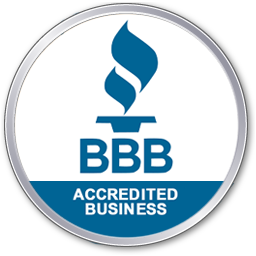Executive Summary
- Underground storage tanks (USTs) are buried containers typically made of steel or fiberglass. Historically, they have been used to store hazardous substances, such as petroleum products and other chemicals.
- Federal and state regulations require USTs to be registered, monitored, and maintained or decommissioned to minimize the risk of soil and groundwater contamination that can impact surrounding ecosystems.
- If a property has an unregistered UST on its premises, it may pose risks to human health and the environment, potentially warranting substantial remediation or resulting in legal penalties.
- UST professionals can assist you in registering, monitoring, maintaining, or decommissioning USTs, thereby mitigating the risk of environmental harm and legal or financial consequences.
Learning What to Do About Unregistered USTs and Their Implications
Underground storage tanks (USTs) have been used since the early 1900s as a discreet method for storing products such as motor fuel or hazardous waste, including spent acids or bases. Due to the potentially hazardous substances contained within an underground tank, it is essential to ensure each UST is accounted for and well-maintained or decommissioned.
Despite the valiant efforts of the Environmental Protection Agency (EPA) throughout the 1980s onward, by the early 2000s, there were still roughly 190,000 unregistered USTs that officials had not been able to inspect for leaks, posing contamination risks that remain present today.
The guide below explains what happens if an underground storage tank system remains unregistered and outlines corrective action activities that can be taken. Although reading through the considerations below can be helpful, anyone wondering what to do about unregistered USTs should contact a qualified environmental professional. They can perform a tank sweep to locate potential USTs, conduct follow-up testing to determine if your underground storage tank is leaking, and provide any other services that may be needed to meet underground storage tank regulations.
Understanding Underground Storage Tanks
An underground storage tank system usually consists of a large steel, aluminum, or fiberglass container and underground piping. To qualify as a UST, at least 10% of the system’s combined volume must be buried underground.
Purpose of a UST
For approximately a century, USTs have been a crucial component of fuel and chemical storage infrastructure, as they are utilized to store regulated substances, including fuel, waste oils, and other hazardous chemicals.
The discreet nature of USTs has made them popular alternatives to above-ground storage tanks. However, since they are buried beneath properties, unregistered tanks can unfortunately go undetected for years.
Common Substances Stored in USTs
According to EPA, approximately 542,000 USTs nationwide store petroleum or hazardous substances. Some examples of specific substances that USTs may contain are:
- Gasoline, diesel, or jet fuels for service stations
- Home heating oil in residential tanks
- Industrial waste, such as chemicals and solvents, in commercial settings
- Used oil and lubricants at vehicle maintenance facilities
- Pesticides or herbicides for agricultural operations
To safeguard environmental and human health and prevent the release of petroleum products or any other substances listed above, it is essential to register and maintain all USTs.
What Qualifies as an Unregistered UST
A UST is considered unregistered if it was never officially documented with the appropriate state or federal regulatory agency as required by law. Some examples of reasons USTs may be unregistered are:
- The tank was never registered when installed
- The tank was removed from inventory without proper decommissioning
- The tank predates modern UST regulations, which were also overlooked during compliance updates
Unregistered USTs can be problematic because they are not subject to the same standards as registered USTs, including regular monitoring, maintenance, and leak detection requirements. Because of this, EPA considers unregistered USTs a potential threat to the environment, encouraging the organization to impose civil monetary penalties for noncompliance with reporting requirements.
Regulatory Framework for USTs
There are numerous laws governing USTs, requiring the registration, interstitial monitoring, and maintenance of tanks to safeguard human health and nearby ecosystems. By paying careful attention to the federal and state-level regulations outlined below, tank owners can ensure compliance and avoid potential legal penalties.
Federal Regulations
EPA is the federal agency responsible for protecting human health and the environment. So, their department develops and enforces regulations, conducts research, and provides guidance on UST-related matters.
Some examples of mandated responsibilities for tank owners outlined in EPA’s Subtitle I of the Resource Conservation and Recovery Act (RCRA) include:
- Ensuring UST registration
- Implementing corrosion protection
- Carrying out leak detection efforts
- Fulfilling financial responsibility requirements if cleanup is needed
Unregistered or abandoned tanks still fall under the rules above, meaning ignorance is not a defense. For a more comprehensive description of EPA’s UST regulations, tank owners should refer to the Code of Federal Regulations, specifically 40 CFR Part 280.
State-Specific Regulations
In addition to the federal regulations mentioned above, many states enforce their own UST standards. For example, Oregon’s Department of Environmental Quality (DEQ) has an Underground Storage Tank program. As of January 2025, individuals and businesses involved with USTs, including permit holders, supervisors, service providers, and licensed operators, have been required to create or update their Responsible Official account.
In addition to creating and establishing a Responsible Official account, tank owners in Oregon should conduct a deeper dive into the state’s UST rules by reading through the cleanup protocols outlined in OAR 340‑122‑0205 to ‑0360, which require immediate release reporting within 24 hours.
Importance of Registration
In general, registering a UST is foundational for compliance because it prevents oversight of activities such as interstitial monitoring and leak detection. Without registration, tanks may go forgotten; this is common with heating oil tanks that fall outside strict federal oversight, yet remain regulated and pose environmental risks.
Environmental Implications of Unregistered USTs
Since unregistered USTs are not subject to oversight, there is no guarantee that the tank is structurally sound or free from leaks. The resulting damage a leaking UST can cause to soil and groundwater can be long-lasting and demand substantial corrective action costs, making emergency action important. Read through the considerations below to gain a better understanding of the potential environmental implications of unregistered USTs.
Possible Soil Contamination
Abandoned, unattended USTs are known to corrode over time, potentially leading to the release of petroleum products or other hazardous substances. This is why soil sampling is needed for USTs.
Risk to Groundwater Quality
After seeping into the soil, toxins found in oil, including benzene and MTBE, may infiltrate groundwater, jeopardizing the safety of drinking water. The Used Oil Management Association claims a single gallon of oil can pollute one million gallons of water if it reaches a significant enough source, posing widespread ecological hazards.
Impact on Surrounding Ecosystems
In addition to their impact on humans, UST leaks can create toxic plumes in soil and water that also harm plant life, wildlife, and biodiversity, leaving behind long-term environmental damage.
Health and Safety Concerns
Unmonitored leaking tanks can present direct risks to the property’s inhabitants. Compromised drinking water or indoor air from leaks can also endanger surrounding neighborhoods and ecosystems, putting people living or working nearby at risk as well.
Some examples of public health risks associated with UST leaks are:
- Respiratory problems – Some harmful vapors from leaking USTs are capable of migrating into buildings, causing breathing issues, along with headaches, nausea, and dizziness.
- Skin and eye irritation – If someone comes into direct contact with contaminated soil, they may experience rashes, burns, or eye discomfort.
- Liver and kidney damage – When ingested via drinking water, certain petroleum-based chemicals can accumulate in the body and harm vital organs over time.
- Increased cancer risk – Long-term exposure to petroleum hydrocarbons, particularly benzene, has been linked to leukemia and other cancers.
- Endocrine disruption – Some leaked chemicals may interfere with hormone systems, potentially affecting growth, metabolism, and fertility, possibly leading to congenital disabilities or developmental delays
In addition to bodily risks mentioned above, leaks from unregistered USTs can generate explosion and fire hazards if flammable vapors build up in confined areas.
Alpha Environmental supports you with your underground storage tank, providing tank sweeps, tank decommisioning, UST removal, and more.Professional Underground Storage Tank Services
Legal and Financial Consequences of Non-Registration
The environmental threats posed by unregistered USTs are taken very seriously, meaning that noncompliant tank owners may be subjected to stiff financial penalties, corrective action costs for cleanups, and even lawsuits, as outlined below.
Fines and Penalties for Non-Compliance
As of January 8, 2025, EPA raised the civil monetary penalty for failing to comply with UST regulations listed in 42 U.S.C. § 6991e(a)(3) to $74,943 to account for inflation. Many state programs impose additional fines on top of the federal penalties from EPA.
Cost of Remediation and Clean-Up
The corrective action costs for cleaning up leaking underground storage tank systems typically range from $80,000 to $175,000 per site. However, each corrective action plan is unique and has its own distinct labor demands. Therefore, corrective actions for severe contamination can result in expenses of several hundred thousand dollars.
Experienced, compassionate remediation companies like Alpha Environmental build corrective action plans that are as effective and economical as possible. We take pride in helping our fellow Oregonians clean up their properties, so all of our corrective action activities, such as UST decommissioning, consider both their safety and their wallet.
Potential for Legal Liabilities
In most cases, tank owners have a financial responsibility to cover the costs of ongoing health impacts and cleanup needs, meaning they may face lawsuits from neighbors, municipalities, or environmental agencies, depending on who was impacted by their UST negligence.
Benefits of Proper UST Management
In addition to helping you avoid penalties, UST compliance can offer financial, social, and environmental benefits. Some benefits that proactive registration, interstitial monitoring, and maintenance can offer are:
- Avoiding corrective action costs – By registering and maintaining USTs, tank owners can mitigate the risks of costly cleanups, potentially saving tens of thousands to hundreds of thousands of dollars on remediation.
- Enhancing community trust and safety – Properly managing tanks can support public confidence and neighborhood safety, reassuring residents, buyers, and regulators.
- Contributing to sustainable practices – Well-maintained USTs safeguard ecosystems and public health, enabling responsible tank owners to contribute to sustainability efforts.
Steps to Ensure Compliance with UST Regulations
Navigating UST compliance may seem complex, but numerous resources are available to help you understand the necessary steps to take. If applicable, you can contact your state’s UST program if you suspect an unregistered UST. For example, Oregonians can email their DEQ’s UST duty officer or call them at 503-229-5034.
Another good idea is to contact a dependable environmental remediation company, such as Alpha Environmental, that can help with regular monitoring and maintenance. Environmental professionals can help tank owners install leak detection systems, cathodic protection, and perform periodic soil testing to comply with EPA’s Subtitle I and relevant state laws.
Alpha Environmental Offers Comprehensive UST Services
All under- and above-ground storage tanks can pose risks, but unregistered USTs are common culprits of soil and groundwater contamination. Even unsuspecting tank owners can face substantial penalties if they contribute to ecological harm or human health hazards. Registration, routine interstitial monitoring, and professional oversight are the best ways to ensure compliance and promote environmental safety.
Alpha Environmental can assist clients who are unsure about what to do with unregistered USTs or whether they have one at all. Our experienced team can perform thorough site surveys to locate potential tanks. If found, we can assist with registration, inspections, and corrective action activities, such as tank removal or decommissioning and tank closure. We can also assist with remediation and post-remediation clearance testing to make things as simple as possible.
If you are wondering what to do about an unregistered UST, contact Alpha Environmental Services today for expert-level UST services.




